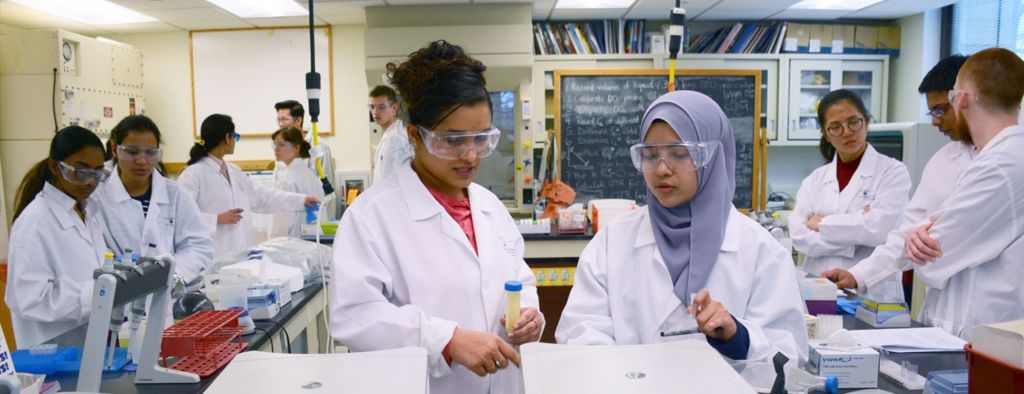
The Master of Biotechnology program is the oldest program of its kind in the United States. The program is offered by the Penn State Department of Biochemistry and Molecular Biology in collaboration with the Huck Institutes of the Life Sciences. The graduate faculty is multidisciplinary, consisting of faculty members from diverse academic departments and colleges.
Master of Biotechnology graduates are engaged in diverse careers in industry, including those related to discovery research, research and development, biomanufacturing, clinical research, global consulting work, business analysis and business development, procurement, intellectual property and regulatory work, and applied research. Some have also gone on to combine their Master of Biotechnology degree with an M.B.A., J.D., M.D., or Ph.D. degree.
Specific program features include:
- Internship/co-op experience in industry, government, or other institutions
- Science-grounded curriculum with breadth and flexibility to allow students to focus on their specific area of interest in biotechnology
- Intensive laboratory training in molecular biology and biofermentation/bioprocessing
- On-campus laboratory research experience via "individual studies" courses
- Access to a network of industry professionals via the dedicated Biotechnology Advisory Board, industry guest speakers, internship hosts, and program alumni in diverse careers in biotechnology
- Understanding of the state-of-the-art research that takes place in the industry, as well as the business, intellectual property, regulatory, legal, ethical, and social aspects of biotechnology
- Dedicated academic advising and a team-building cohort format for new students
- Access to dedicated on-campus career services, career development programs, and career fairs
- Short time-to-degree with a consistent 100% graduation rate since the program's launch in fall 2000
- Preparation for diverse careers in the biotechnology industry, biopharma, government, and nonprofit institutions, as well as enhanced qualifications for other graduate and professional degrees